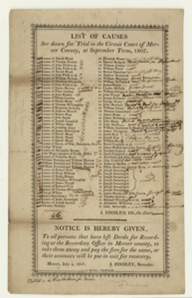
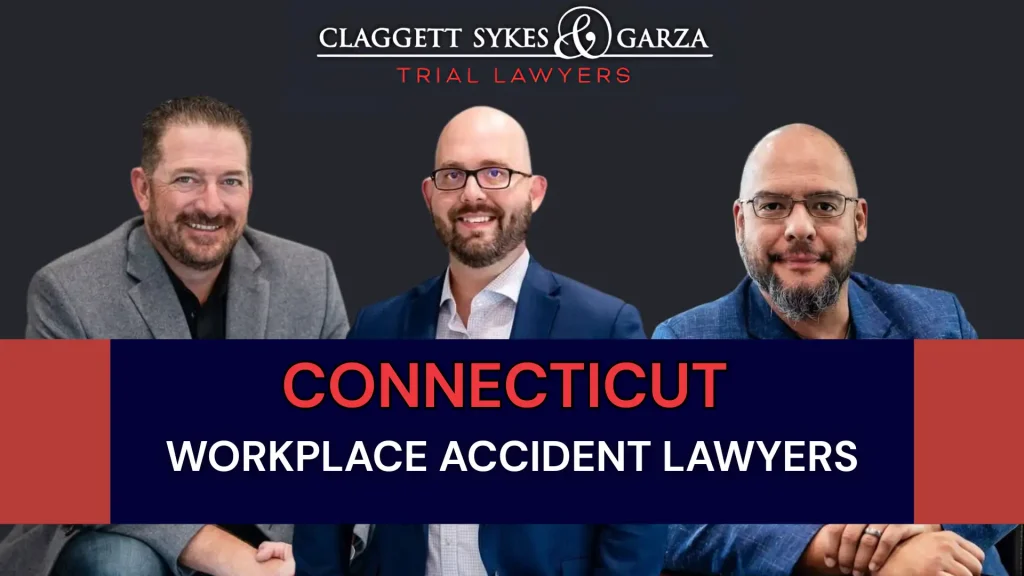
When workplace accidents occur in Connecticut, Claggett, Sykes & Garza Trial Lawyers provides experienced legal representation. Our Connecticut workplace accident lawyers handle both workers’ compensation and third-party personal injury claims, securing record-breaking verdicts, including $100 million for injured workers. If you or a loved one has been injured in the workplace, don’t wait to get the help you need—reach out to a trusted Workplace Accident Lawyer by contacting us online or calling 860-471-8333.
We work on a contingency fee basis, so you pay nothing until your case is won.
Understanding Workplace Accidents in Connecticut
Connecticut workers face significant risks of injury across various industries. According to recent Bureau of Labor Statistics data, approximately 33–37 workplace fatalities occur annually in Connecticut, with thousands more workers suffering non-fatal injuries. In 2023 alone, Connecticut recorded 33 workplace fatalities and 7,125 workplace injuries, representing over 33,000 days away from work.
The Connecticut Workers’ Compensation Commission oversees the state’s workers’ compensation system, ensuring injured workers receive proper benefits and medical care.
Workers’ Compensation and Personal Injury Claims
Workplace accidents in Connecticut can result in two distinct types of claims:
Workers’ compensation provides immediate medical coverage and wage replacement benefits regardless of fault.
Personal injury claims against third parties may provide additional compensation when someone other than your employer caused the accident.
What Workers’ Compensation Covers
Workers’ comp benefits include:
- Medical expenses
- Temporary disability benefits (75% of net average weekly wage)
- Permanent disability benefits are applicable when applicable
While essential, these benefits may not fully compensate victims with severe injuries or long-term disabilities.
Combining Workers’ Comp and Personal Injury
Connecticut law allows injured workers to pursue both workers’ compensation and third-party claims simultaneously. This approach can significantly increase total compensation, especially when contractors, property owners, or manufacturers are at fault.
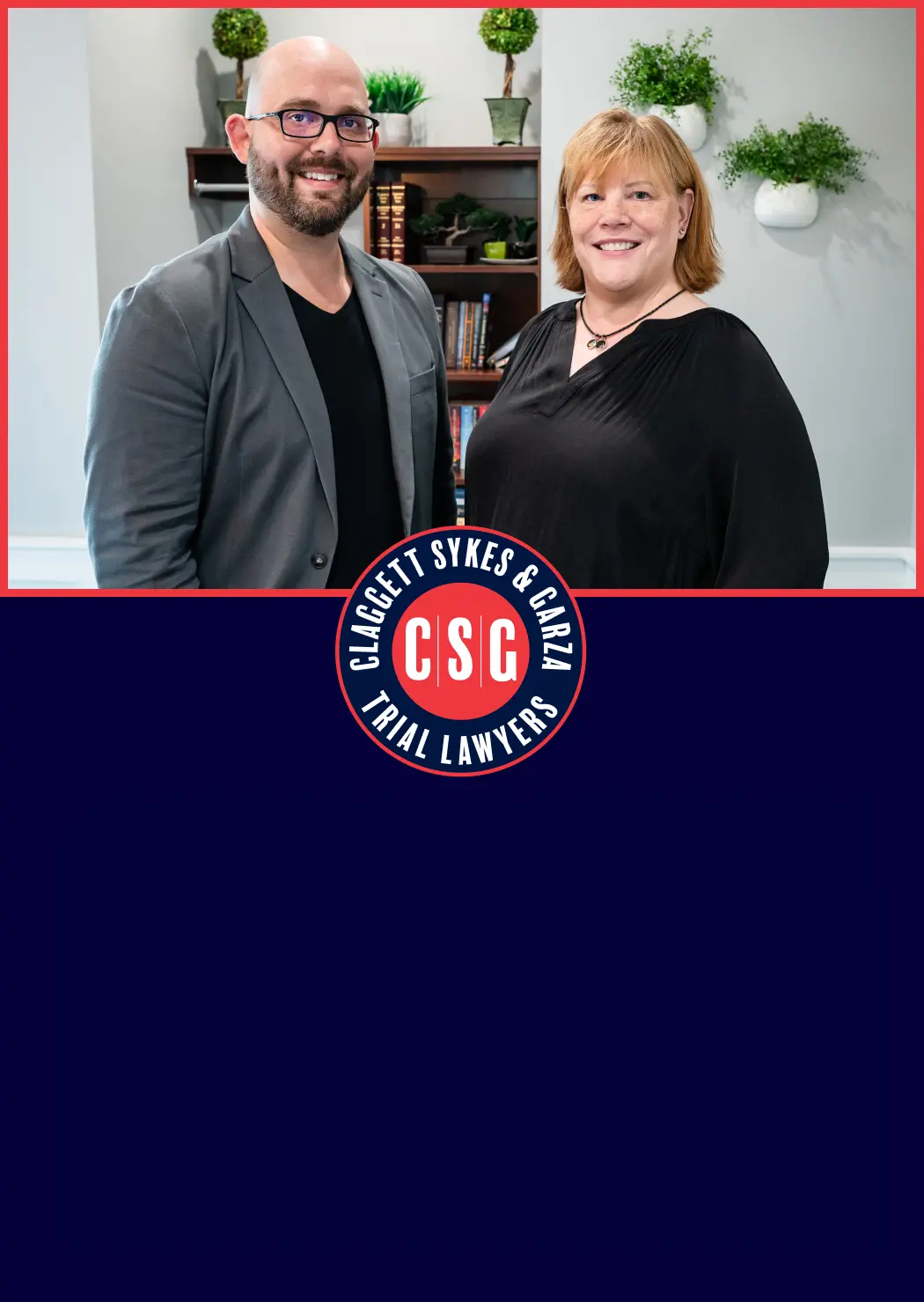
Get the Compensation You Deserve. Our Experienced Lawyers Can Help.
Types of Workplace Accidents We Handle
Construction Accidents
Construction workers face high risks, with OSHA identifying the “Fatal Four” causes of deaths: falls, being struck by objects, electrocution, and caught-in/between accidents. Multiple parties, including general contractors, subcontractors, property owners, and manufacturers, may share liability.
Construction accident cases often involve complex liability issues requiring experienced legal representation to identify all responsible parties.
Industrial and Manufacturing Accidents
Common causes include defective machinery, unsafe protocols, or toxic chemical exposure. These may lead to occupational diseases such as respiratory illness, hearing loss, or repetitive stress injuries.
The Occupational Safety and Health Administration sets strict safety standards for industrial workplaces to prevent these accidents.
Office Accidents
Slip-and-falls, repetitive stress injuries, and injuries from defective furniture or falling objects can result in serious medical costs and time away from work.
Even seemingly minor office accidents can lead to significant workers’ compensation claims when proper medical documentation is maintained.
Transportation and Delivery Accidents
Drivers and delivery workers face hazards from motor vehicle crashes, heavy machinery, and loading dock accidents. These cases often involve multiple liable parties.
The Federal Motor Carrier Safety Administration tracks commercial vehicle accident statistics that often apply to workplace transportation injuries.
Healthcare Worker Accidents
Healthcare employees risk needle stick injuries, infectious disease exposure, back injuries from lifting patients, and even workplace violence. These cases often require complex claims.
Healthcare worker injuries may involve both workers’ compensation and potential third-party liability claims against equipment manufacturers or other healthcare facilities.
Connecticut Workers’ Compensation vs. Personal Injury Claims
How Workers’ Compensation Works
Workers’ comp is a no-fault system that provides benefits regardless of who caused the accident, but compensation is limited.
Exceptions to Exclusive Remedy
Under Connecticut General Statutes Section 31-284, you may sue your employer in limited situations, including:
- Intentional harm
- Failure to carry workers’ compensation insurance
- Misconduct beyond ordinary negligence
Third-Party Liability
You may sue third parties such as contractors, equipment manufacturers, property owners, or negligent drivers.
Third-party liability claims can provide compensation beyond workers’ compensation limits, including pain and suffering damages.
Coordinating Claims
Pursuing both claims requires careful legal strategy. Workers’ comp has set formulas for benefits, while personal injury claims may cover pain and suffering, loss of enjoyment of life, and full wage replacement.
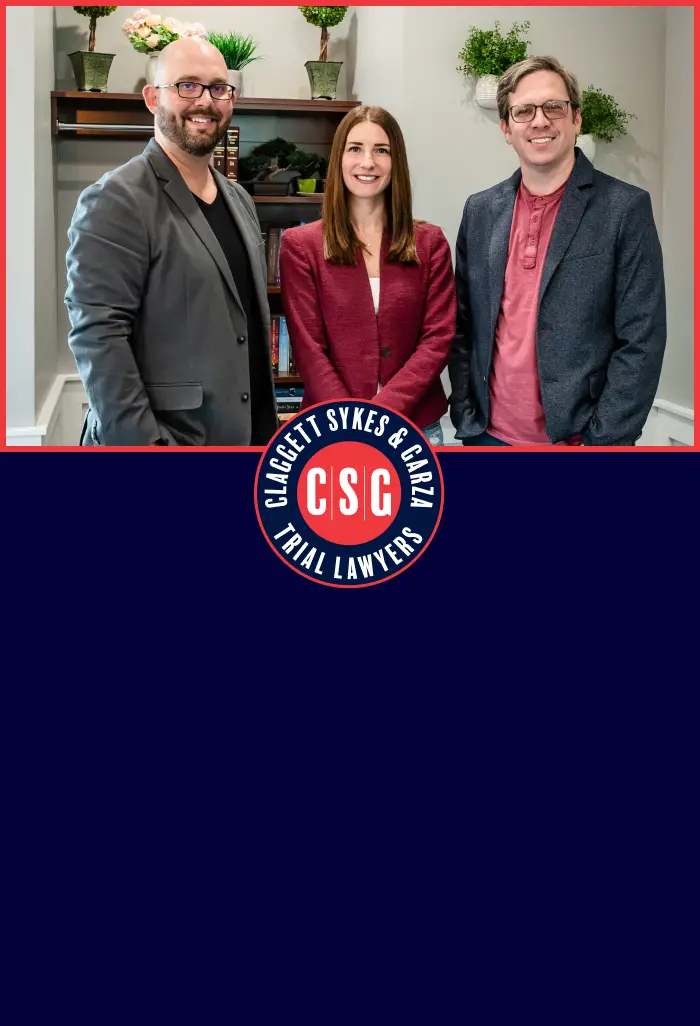
Let Us Fight for Your Rights and Maximize Your Compensation.
How Our Connecticut Workplace Accident Lawyers Can Help
Immediate Medical Attention
We ensure you receive necessary treatment while properly documenting injuries for both workers’ compensation and personal injury claims.
Thorough Investigation
Our team preserves evidence, interviews witnesses, and works with experts to identify all liable parties and build strong cases.
Our experienced attorneys understand the complexities of workplace accident investigations and work with industry experts to strengthen your case.
Handling Insurance Companies
We manage all insurer communications, preventing tactics that minimize or deny claims.
Insurance companies often use aggressive tactics to reduce payouts, but our trial lawyers are prepared to take cases to court when necessary.
Calculating Full Damages
We evaluate current and future medical costs, lost wages, diminished earning capacity, and non-economic damages.
Navigating Legal Procedures
We handle all workers’ comp requirements, including filing the Form 30C Notice of Claim within one year and representing you in hearings.
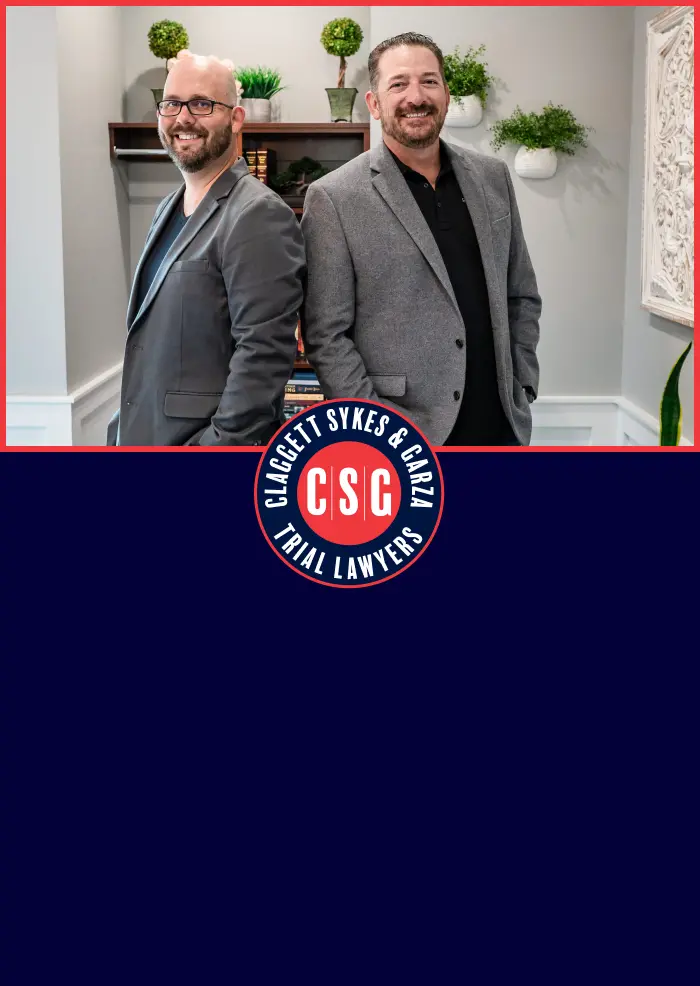
Experienced Personal Injury Lawyers Ready to Assist You.
Our Record-Breaking Results
Historic Verdicts
- $100 million: Connecticut’s largest bodily injury verdict (warehouse paralysis case).
- $485 million: Largest single-plaintiff sexual abuse verdict in history (institutional liability case).
- $145 million: Largest workers’ compensation bad faith verdict in U.S. history.
These results demonstrate our ability to handle complex workplace accident cases and secure maximum compensation.
Legal Awards & Recognition
Andrew Garza
- 2022 Keenan Trial Institute Trial Lawyer of the Year
- 2023 New England Legal Awards Lawyer of the Year
- Super Lawyers (2016–2023)
- Best Lawyers in America (2024) for Personal Injury Litigation – Plaintiffs
Andrew Garza has dedicated his career to representing injured workers and securing record-breaking verdicts for his clients.
Sean Claggett
- 2017 Nevada Justice Association Trial Lawyer of the Year
- AV Preeminent Rating (Martindale-Hubbell)
- Mountain States Super Lawyers (2014–2022)
Firmwide Recognition
Multiple attorneys are members of the Multi-Million Dollar Advocates Forum. Attorneys regularly speak at conferences and train other lawyers in trial advocacy.
Contact Our Connecticut Workplace Accident Lawyers Today
If you’ve been hurt in a workplace accident, act quickly—Connecticut law imposes strict deadlines, and early action helps preserve vital evidence.
At Claggett, Sykes & Garza Trial Lawyers, we offer free consultations and work on a contingency fee basis—you pay nothing unless we win. Our attorneys will review your claim, explain the workers’ compensation process, and identify any potential third-party liability.
Contact us online or call 860-471-8333 today to protect your rights and pursue the full compensation you deserve.
Frequently Asked Questions
What should I do immediately after a workplace accident in Connecticut?
Your immediate priorities after a workplace accident are seeking medical attention and reporting the accident to your employer. Even if your injuries seem minor, obtain a medical evaluation to ensure that all injuries are properly diagnosed and documented. Report your accident to your supervisor or employer as soon as possible, preferably in writing, to create an official record of the incident.
Preserve evidence from the accident scene if you are able to do so safely. Take photographs of the area, any equipment involved, and your injuries. Collect contact information from witnesses who saw the accident occur. Do not give detailed statements to insurance representatives without consulting with an attorney first.
Contact an experienced Connecticut workplace accident lawyer as soon as possible to protect your rights and ensure that all potential claims are properly pursued. Early legal intervention can prevent insurance companies from taking advantage of your situation and ensure that crucial evidence is preserved.
How long do I have to file a workers’ compensation claim in Connecticut?
Connecticut law requires injured workers to file a Notice of Claim (Form 30C) within one year of the date of injury or within one year of when you knew or should have known that your condition was work-related. For occupational diseases that develop over time, the deadline runs from when you first became aware of the connection between your condition and your work.
Missing this deadline can result in the loss of your right to workers’ compensation benefits, making it crucial to act promptly after any workplace injury. However, there are limited exceptions to this deadline in cases involving fraud or other extraordinary circumstances.
While you have one year to file the formal claim, you should report your injury to your employer immediately and begin the claims process as soon as possible. Early reporting helps establish that your injury is work-related and prevents insurance companies from arguing that delays indicate your injury is not connected to your employment.
Can I sue my employer for a workplace accident?
Connecticut’s workers’ compensation system generally provides the exclusive remedy against your employer for workplace injuries, meaning you cannot sue your employer in most cases. However, Connecticut General Statutes Section 31-284 provides important exceptions to this rule.
You may be able to sue your employer if they intentionally caused your injury, failed to carry required workers’ compensation insurance, or engaged in conduct that goes substantially beyond ordinary workplace negligence. These exceptions are narrowly interpreted by Connecticut courts and require strong evidence of intentional wrongdoing or gross negligence.
More commonly, injured workers can pursue third-party personal injury claims against parties other than their employer who contributed to their accident. These may include equipment manufacturers, contractors, subcontractors, property owners, or drivers involved in work-related vehicle accidents.
What if my workers’ compensation claim is denied?
If your workers’ compensation claim is denied, you have the right to appeal the decision through Connecticut’s workers’ compensation administrative process. The insurance company must provide written notice of the denial explaining the reasons for their decision.
You can request an informal hearing before a workers’ compensation commissioner to present evidence supporting your claim. If the informal hearing does not resolve the dispute, you can proceed to a formal hearing with the opportunity to present witness testimony and expert evidence.
Having experienced legal representation is crucial when appealing a denied workers’ compensation claim. Insurance companies often deny legitimate claims, hoping that injured workers will not pursue their rights. Our attorneys have extensive experience challenging wrongful denials and securing the benefits our clients deserve.
How much is my workplace accident case worth?
The value of your workplace accident case depends on numerous factors, including the severity of your injuries, the extent of your medical treatment, your lost wages, and whether third parties contributed to your accident. Workers’ compensation benefits are calculated based on statutory formulas, while personal injury claims can include additional damages for pain and suffering.
Severe injuries that result in permanent disability or require ongoing medical treatment typically result in higher compensation. Cases involving multiple liable parties or insurance bad faith can also significantly increase the value of your claim.
Our attorneys conduct a thorough evaluation of your case, including consultation with medical experts and economists, to determine the full extent of your damages. We consider not only your current losses but also future medical expenses, lost earning capacity, and the long-term impact of your injuries on your quality of life.
Do I need a lawyer for my Connecticut workplace accident case?
While Connecticut law does not require you to have an attorney for workers’ compensation claims, having experienced legal representation significantly improves your chances of obtaining fair compensation. Insurance companies have teams of lawyers and adjusters working to minimize their payouts, and you need an advocate who understands the system and will fight for your rights.
Workplace accident cases often involve complex legal and medical issues that require specialized knowledge to navigate effectively. Our attorneys understand Connecticut workers’ compensation law, personal injury law, and the tactics insurance companies use to deny or minimize claims.
Legal representation is particularly important when your claim is denied, when you have suffered severe injuries, or when third parties may be liable for your accident. We handle all aspects of your case, allowing you to focus on your recovery while we fight for the compensation you deserve.
